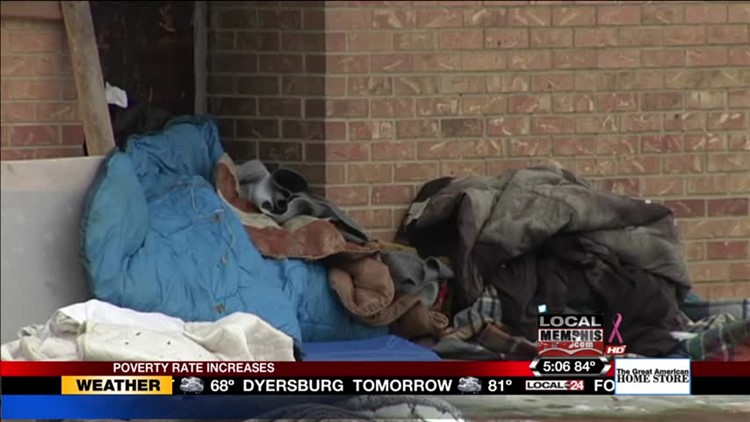Memphis poverty numbers released, child poverty rate at 44.7 %
The national poverty numbers are out and the city of Memphis ranks among the top.
Memphis’ poverty rate is 26.9 percent, that is a 2.7 percent increase from the study done by the Census Bureau in 2015. The child poverty rate in Memphis is 44.7 percent, a 4 percent increase from 2015. The poor in Memphis tend to be minorities.
Dr. Elena Delavega oversees the 2017 Memphis Poverty study at the University of Memphis. She was disappointed to see an increase in the city’s poverty numbers among adults and children. She blames the rate on low wages, the healthcare and the city’s poor education system.
“People are working. People are working very hard, but the amount that they are making it not enough,” Dr. Elena Delavega, Professor of Social Work, University of Memphis. “We cannot have 30 percent of the people and almost half the children in poverty and be a successful city.”
Two groups of people poverty rates decreased. Those include, Hispanics in the city of Memphis and non Hispanic whites in Shelby County. Tennessee has a minimum wage of $7.25. Dr. Delavega says that’s not enough for working families.
“When a person works 40 hours at minimum wage they bring home a check after taxes. They do pay taxes is $240. And this has not changed since 2009, ” Dr. Delavega explained.
Charlie Caswell, Pastor of Union Grove Baptist Church agrees with Dr. Delavega. He’s trying to offset the numbers with a program called, “Bee Memphis.” This is an after school program for teenagers where they can learn basic sewing skills.
“We need to revisit the minimum wage no doubt but I think also we need to invest in better education so people are skilled and ready for those types of jobs,” Caswell explained.
Dr. Delavega says lowering the poverty rate in the city takes a collective effort. She says it can also offset crime in the city.
“Crime is the result of that poverty both in absolute terms when people need to eat, when people need to feed their children but also because of the inequality that we have in this city,” she explained.



